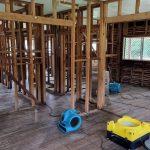Successfully installing drywall involves a variety of techniques and strategies that can significantly influence the outcome of your project. Whether you are upgrading a room to enhance its aesthetic appeal or replacing existing drywall due to damage, possessing the right knowledge is crucial for a seamless experience. Before you enlist the help of a handyman, it’s vital to grasp several key factors. This includes verifying the handyman’s licensing credentials, understanding the cost of drywall installation, and selecting a qualified professional who meets your specific needs and expectations.
Key Steps to Successfully Obtain a Handyman's License for Drywall Installation
If you're keen on establishing a career in the drywall installation sector, securing a handyman's license should be one of your primary goals. Although it's not a requirement in every state, many states mandate this credential to ensure that professionals adhere to local regulations and standards. To find out if you need this license, you should start by conducting thorough research on the specific licensing requirements that apply in your state.
For smaller tasks, such as painting or performing minor appliance repairs, most states typically do not require a handyman's license. However, if your goals include tackling larger projects, you may find that acquiring a separate license for each type of work is necessary, depending on local laws and regulations. Understanding these requirements is essential for ensuring compliance and avoiding potential legal issues.
In addition to obtaining a handyman's license, securing adequate insurance is equally crucial. A contractor's liability and property damage insurance policy can shield you from financial losses in case of injuries or damages that may occur during a project. If you plan to hire employees, you will also need to obtain workers' compensation insurance to protect against workplace injuries. Diligently reviewing construction plans allows you to estimate material and labor costs accurately, enabling you to submit competitive bids without sacrificing quality.
When pursuing a handyman's license specifically for drywall installation, certain standards and requirements must be met. For example, in Georgia, applicants are required to pass trade, business, and law examinations to demonstrate their expertise. Additionally, having a minimum of two years of hands-on experience as a handyman, along with proof of general liability and workers' compensation insurance, is essential. If your projects exceed $1,000 or require construction permits in certain jurisdictions—such as Hawaii—a general contractor's license may also be necessary.
While a handyman's license for drywall installation isn't universally required, it is highly recommended, especially if you plan to undertake more extensive work beyond simple repairs and installations. Each state has its own specific requirements, but they generally entail obtaining liability insurance and a handyman's license to safeguard against potential legal disputes and property damage claims.
To achieve success as a handyman, it's crucial to familiarize yourself with the varying standards and licensing requirements across different states. Significant differences often exist at the local level regarding handyman licenses, so comprehensive research is essential if you intend to handle a wide range of projects effectively.
Comprehensive Guide to Understanding Drywall Installation Costs
The cost of drywall installation can vary widely based on several factors, including the scope of the project, the type of materials required, and the overall complexity of the work. For instance, larger holes typically necessitate full drywall replacement, which can greatly inflate the total expenses involved. Furthermore, the quantity of materials needed will have a direct impact on both material and labor costs, making it critical to assess the job’s size accurately before proceeding. A skilled handyman can often complete smaller tasks, such as patching holes, within just a few hours, significantly reducing labor costs.
Conversely, extensive drywall repairs resulting from substantial holes or water damage require more time, effort, and expertise. In severe cases, the entire drywall section may need to be removed and replaced, which could necessitate the hiring of a professional with specialized skills. This situation can lead to increased overall costs, as specialized labor may command a higher rate due to the complexity and expertise required.
Proper planning and preparation are paramount in ensuring a successful drywall installation. A comprehensive list of necessary supplies and tools is essential, and the total cost will be determined by both the size of the area and the intricacy of the job. Handymen often require the assistance of additional workers, particularly for larger projects where multiple hands can expedite the process. Additionally, the installation cost may fluctuate based on whether prep work and cleanup are necessary. Complex ceiling designs or numerous corners can also contribute to increased material and labor expenses, making detailed planning even more important.
The choice of drywall used in the project will also significantly influence the overall installation costs. Standard drywall is frequently utilized in most commercial constructions and is available in a variety of widths and thicknesses to suit different needs. Understanding the specific requirements for your project will help in selecting the most appropriate materials.
For larger undertakings, the expenses can accumulate rapidly. The total cost is largely dependent on the project's size and intricacy. Smaller jobs might have a higher cost per square foot, yet drywall remains a more cost-effective option when compared to other construction materials available on the market.
While hiring a handyman may appear to be a cost-effective solution, enlisting the services of a drywall specialist can offer significant advantages. Specialists possess the necessary expertise for a wide range of tasks, from removing outdated popcorn ceilings to creating new drop ceilings. Their experience with taping joints and applying textures ensures a higher quality of workmanship. Additionally, they are well-equipped to handle issues such as water damage, hole repairs, and more intricate texturing techniques.
When selecting a drywall contractor, it's crucial to obtain a detailed contract that clearly outlines the project scope and associated costs. The contract should explicitly specify the number of drywall sheets required, the type of material to be used, and provide a comprehensive breakdown of both labor and material expenses involved.
Essential Guide to Choosing the Right Handyman for Your Drywall Projects
Before committing to hiring a handyman for your drywall installation, it’s imperative to ask several essential questions to ensure you make an informed choice. Start by inquiring about the estimated timeline for the project. Even the most skilled drywall installers may have different schedules, so understanding the expected timeframe will help to avoid any dissatisfaction upon project completion.
It’s advisable to interview at least three potential handymen before making your final decision. During these interviews, ask about their experience and request references from previous clients to gauge their reliability and quality of work. Ensuring that the handyman you choose possesses the necessary skills and tools for the job is vital to achieving the best possible outcome. Additionally, confirm that their services align with your budgetary constraints.
Next, assess the potential costs associated with drywall installation. By comparing bids from various contractors, you can gain insights into the prevailing rates for your particular project. A reputable contractor should provide a comprehensive cost breakdown that encompasses all materials, supplies, and any additional expenses that may arise during the project.
Verifying credentials and insurance coverage is another critical step before hiring a handyman. Obtaining a written contract and references can provide peace of mind and help you ascertain that the handyman is indeed the right fit for your project. Requesting examples of their previous work will offer further confidence in your decision and help you understand the quality of their craftsmanship.
A competent handyman should possess a diverse skill set, enabling them to manage a variety of tasks effectively. For instance, if your ceiling has a hole that requires drywall installation, a qualified handyman should be equipped to handle that task. Additionally, they should be capable of assisting with related projects, such as installing new light fixtures or repairing popcorn texturing on ceilings.
Thoroughly check the handyman's experience and references before making a commitment to ensure you hire someone capable of delivering satisfactory results. An experienced handyman is more likely to execute the job competently, increasing the chances of a successful project. It’s wise to steer clear of contractors who utilize high-pressure sales tactics or exhibit inflated advertising budgets, as these may be red flags indicating a lack of integrity.
Maintain your budget as a priority when hiring a handyman for drywall installation. An efficient handyman should be able to complete the job in a timely manner while respecting your property and its surroundings. They should also prioritize cleanliness, ensuring that the workspace is tidy and organized upon project completion.
A handyman with knowledge of plumbing and electrical systems is an excellent choice for repairing leaks or addressing related tasks. Their multifaceted skills can be beneficial for a range of projects, including hole repairs, light painting, deck repairs, and drywall installations.
Finding a trustworthy handyman in your area is entirely achievable. Explore online reviews and seek recommendations from friends and family, as personal referrals can often lead to reliable professionals. Additionally, don’t hesitate to ask your handyman for client references to verify their reputation and capabilities in the field.
The post How Does a Handyman Do Drywall Installation? appeared first on https://gqcentral.co.uk
The Article Drywall Installation Techniques by a Handyman Was Found On https://limitsofstrategy.com



